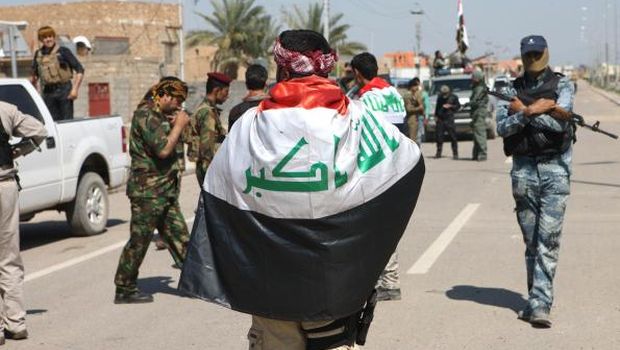As the Islamic State of Iraq and Syria (ISIS) continues to advance in Iraq, Arab Sunni tribes are increasingly joining the fight against the central government amid fears of a full-scale sectarian conflict breaking out in the country. This is something that cannot and must not happen. Amid all this, it is clear that Iraqi prime minister Nuri Al-Maliki’s quest for a third term in office is increasingly untenable.
In his eight years as premier, Maliki has pursued increasingly sectarian and authoritarian policies that have left his country fractured. Over the past four years, his handling of the escalating security crisis has been abysmal. Acting as interior and defense minister over the past four years as well as prime minister, Maliki is directly responsible for the lack of security in the country. If any other country were facing as severe a crisis, its minister of defense would be forced to resign. Iraqis must be given the chance to build a new government based on a consensus of all ethnic and religious communities and unify the country.
The current tensions can be traced to the anti-government Sunni Arab protests that began in Iraq’s western Anbar province in 2012. There have been major anti-Maliki protests among Sunnis in six Iraqi governorates—Anbar, Diyala, Karbala, Nineveh, Salah Al-Din and Kirkuk—over perceived government bias against Iraq’s Sunnis. Maliki sent in the army to break up the camps in late 2013, which only served to exacerbate the situation and stoke the growing anger against him.
When the prime minister reversed his decision, ordering the army and police to leave, he left a security vacuum that ISIS was only too happy to exploit. They took over parts of Fallujah and Ramadi in December 2013, and this month has seen ISIS spread from western Anbar to northern and central Iraq, taking the country’s second city, Mosul, and subsequently seizing Tikrit and the northern towns of Jalula, Saadia and Tal Afar, among others. ISIS has now pledged to march on Baghdad, amid fears that the entire country will be engulfed in sectarian strife.
Nobody should support terrorist groups such as ISIS. But neither should we fall victim to lazy thinking of the sort that suggests that it is only terrorists taking up arms against Maliki. Some of the people in Iraq in open rebellion against the government are simply members of aggrieved sections of society looking to secure a fair proportion of political power. Indeed, the Anbar tribal sheikhs who are currently taking up arms against the government have pledged to go after ISIS next.
Iraq is now facing two major challenges: beating back the ISIS advance while also forming a new government following elections held in late April. It is clear that Maliki cannot remain in the Baghdad presidential palace; his presence will only entrench the divide while even major Shi’ite political figures, including Moqtada Al-Sadr and Ammar Al-Hakim, have criticized his policies and security record. Maliki’s State of Law coalition may have won the largest number of seats at the elections, but this is not enough to form a majority government and he must not be allowed to exploit the situation to unite the Shi’ites behind him. A Shi’ite majority government headed by Maliki, will only continue to anger the Sunnis and further exacerbate the situation. Maliki must leave, and only an Iraq led by a national consensus government will be able to overcome the ISIS threat.
